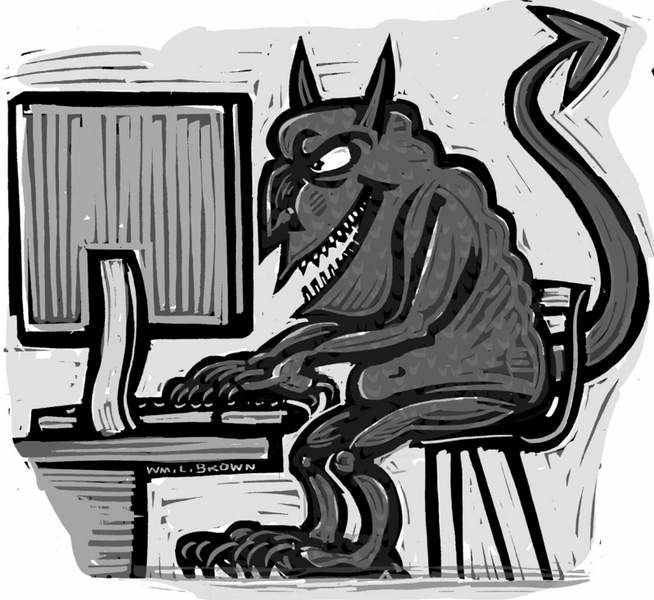Internet’s ongoing test of free speech
Published 5:00 am Sunday, March 15, 2009

- Internet’s ongoing test of free speech
According to somebody out there in computerland, the Dunkin’ Donuts in Centreville, Md., is one of “the most dirty and unsanitary-looking food-service places I have seen.”
Maybe it’s filthy, and maybe it’s not, as the shop owner suggests. But should the owner have the right to find out who’s slamming his business on anonymous Internet comment boards? And if the shop is actually clean and lovely, and the disgruntled customer is just out to destroy the business and slander its owner, does it make sense that an anonymous poster such as “Rockyraccoonmd” has more legal protection than he might if he had attached his name to his comment?
Maryland’s highest court this month decided that anonymous comments on Web message boards have and deserve extraordinary protection. Someone who wants to sue you for anonymous libel must step into the mosh pit of the comment boards and try to persuade you to come forward, because the courts will not tell a Web site to reveal your identity.
That’s great news for folks who get their jollies venting on comment boards, and it’s a nice protection for those who have serious information to put out there but fear retaliation if they attach their names to their messages.
But is it fair to those who might be maligned? Last month, juicycampus .com, the scurrilous Web site that opened its comment boards to highly personal slams by college kids against fellow students, went out of business — because it couldn’t make money, not because of legal problems stemming from readers posting false accusations of sexual misbehavior.
Is the marketplace of ideas protection enough? In an opinion that dissents in part from the Maryland Court of Appeals ruling in the case of Newszap .com, the Web site where the Dunkin’ Donuts comment appeared, Judge Sally Adkins and two other judges argue that the free-for-all atmosphere created by anonymous comments encourages more harmful speech than any other medium in history.
“This ‘anything goes’ mind set, coupled with the virtually unlimited circulation available to bloggers at minimal cost, heightens the danger of injury … from false or exaggerated statements,” she writes. “I would venture to guess that on the Internet, defamation occurs more frequently and is broadcast to more people than via any other medium, past or present. With this in mind, I am reluctant to set additional barriers” against suits to protect a reputation.
Look at the case from the perspective of Zebulon Brodie, owner of the doughnut shop. He doesn’t know who his accuser is — a disgruntled employee, a legitimate customer, his mother-in-law? Shouldn’t he have the right to confront his accuser?
The majority opinion, by Judge Lynne Battaglia, says an aggrieved party first must go on the message board to let the anonymous commenter know that the slammee is ticked off and seeks justice. Then the target of the comment must identify the offending statements and persuade the court that the statements constitute defamation. Only then does the court weigh the claim of defamation against the commenter’s First Amendment right to speak his mind.
If those seem like high hurdles, they are and should be. Our system of protecting free speech depends on the marketplace of ideas to generate its own self-correcting mechanisms. As in the juicycampus.com case, readers might step forward and shame perpetrators into slinking away, or people will collectively decide to ignore or shun the violator, or victims will fight back with words of their own. The system is imperfect, but it has worked for hundreds of years. We’re all still shouting at each other, with pretty good results.
Protecting anonymous speech is one of American law’s most noble ventures. As Supreme Court Justice John Paul Stevens once wrote, “Anonymous pamphlets, leaflets, brochures and even books have played an important role in the progress of mankind. The decision in favor of anonymity may be motivated by fear of economic or official retaliation, by concern about social ostracism, or merely by a desire to preserve as much of one’s privacy as possible. Whatever the motivation … the interest in having anonymous works enter the marketplace of ideas unquestionably outweighs any public interest in requiring disclosure.”
A post on a comment board might have far greater reach than a sign on a lawn or a shout in a public square, but the same theory applies. There will be painful episodes along the way, but making an aggrieved party first submit proof that he has been damaged by an anonymous comment is a good way to protect the rights of those who have something to say.



